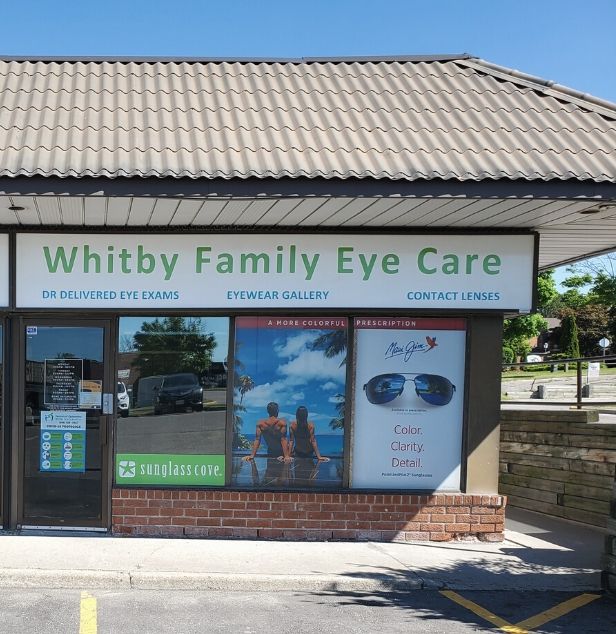Maybe you’ve experienced this before: you’re working on the computer or spending time outside when suddenly your eyes start to feel tired. Your eyes begin watering, and you start wishing for relief.
If this has happened before, you may be experiencing symptoms of dry eyes, a common eye condition. Dry eyes can be annoying as they are uncomfortable and blur your vision. Additionally, this can occur at the least opportune moment, keeping you from enjoying the day.
Fortunately, dry eyes and their cause can be identified with an eye exam. The treatment used for dry eyes can depend on what’s causing your symptoms. Some patients may benefit from in-office treatments, while others can improve their symptoms with at-home solutions like eye drops, eye masks, and lifestyle changes. Learning about your options for treating and avoiding dry eyes can help you find your comfort again.
What Are Dry Eyes?
Dry eyes typically occur when your tears cannot effectively hydrate your eyes, leading to irritation. While many factors can affect dry eyes, they often develop due to issues with your tear film.
Your tear film consists of 3 layers (mucus, water, and oil)—each serving a distinct purpose:
- The mucus layer helps keep the rest of your tear film stable.
- The water layer is responsible for keeping your eyes feeling hydrated.
- The oil layer helps stop your tears from evaporating too quickly.
All these layers work together to help you see clearly and comfortably. Dry eye symptoms can affect you when one or more of these layers becomes deficient causing your tear film to be out of balance.
What Do Dry Eyes Feel Like?
In general, dry eyes can feel painful, irritated, or almost like they’re burning. However, symptoms can vary for each person—some may have milder or more severe symptoms than others.
Common dry eye symptoms include:
- Blurry vision
- Red eyes
- A burning or stinging sensation in the eyes
- Light sensitivity
- Mucus around the eyes
- Watery eyes
- Gritty eyes
What Can Cause Dry Eyes?
While dry eye symptoms can be relatively similar for many people, the source of the issue can vary. Dry eye is a multifactorial condition, meaning there can be many reasons you’re experiencing issues, from age to medical conditions.
Some of the most common causes of dry eyes include:
Meibomian Gland Dysfunction
Around the eye are glands essential for keeping your eyes moist and protected, called meibomian glands. These glands are responsible for providing your eye with the oils it needs to stop your tears from evaporating.
However, if these glands become blocked or clogged, it can lead to dry eye symptoms. This condition, also known as meibomian gland dysfunction, can cause inflammation of your eyelids (blepharitis), worsening your symptoms.
Screen Time
Screen time can be a significant contributor to dry eye disease. How many hours do you spend looking at a screen each day?
From work and school to your free time, you might look at screens quite a lot. As you spend more minutes focused on your computer or phone screen, your blink rate can get slower, resulting in the evaporation of the tear film that coats and protects your eyes and the development of dry eye symptoms.
Aging
Age is a common cause of dry eyes. If you’re over 50, you may have a higher risk of developing dry eye because tear production tends to slow down with age.
Health Conditions
There are a variety of different health conditions that could contribute to the development of dry eye. Some of these conditions include:
- Allergies
- Thyroid disorders
- Vitamin A deficiency
- Rheumatoid arthritis
- Lupus
Treatment for Dry Eyes
Your eye doctor can help address dry eyes after diagnosing the root cause of your symptoms. We can recommend a dry eye therapy plan to help improve your daily comfort with treatment options like prescription eye drops, eyelid cleansers, and specialty eye masks.
Treating Dry Eyes at Home
Depending on your dry eye severity, you may be able to manage your symptoms from home. We can recommend the right at-home treatments for your needs after examining your eyes during an eye exam.
Some common at-home dry eye treatments include:
- Eye drops: Eye drops are one of the most common tools for alleviating dry eyes. Anyone can purchase over-the-counter lubricating eye drops for temporary moisture, but some people require prescription medication like Restastis and Cequa to improve tear production. You should always talk to your eye doctor before taking any kind of eye drops.
- Bruder masks: If you’re experiencing meibomian gland dysfunction, a Bruder heating mask can provide relief. It’s a specially designed heated eye pad that rests over your eyelids. The heat helps melt away blockages in your meibomian glands, which can improve oil flow to your tear film and help keep your eyes healthy and comfortable.
- Blephaclean: Blephaclean is a therapeutic eyelid wipe used to treat symptoms of blepharitis. You can use these wipes as recommended by your optometrist to clean the areas around your eyelid and improve dry eye symptoms.
- Lifestyle changes: Some lifestyle changes can reduce dry eye symptoms. We may recommend using a humidifier, drinking more water, avoiding dry air and wind, or limiting digital device use, depending on the cause of your dry eyes.
Don’t Let Dry Eyes Rule Your Life
If you’re suffering from dry eyes, we can help find the right treatment for you. We take the time to diagnose the underlying cause of your dry eyes and find the right treatments for your needs based on your lifestyle and personal health.
Contact Whitby Family Eye Care if you experience dry eye symptoms. Together, we can find the path to relief.







